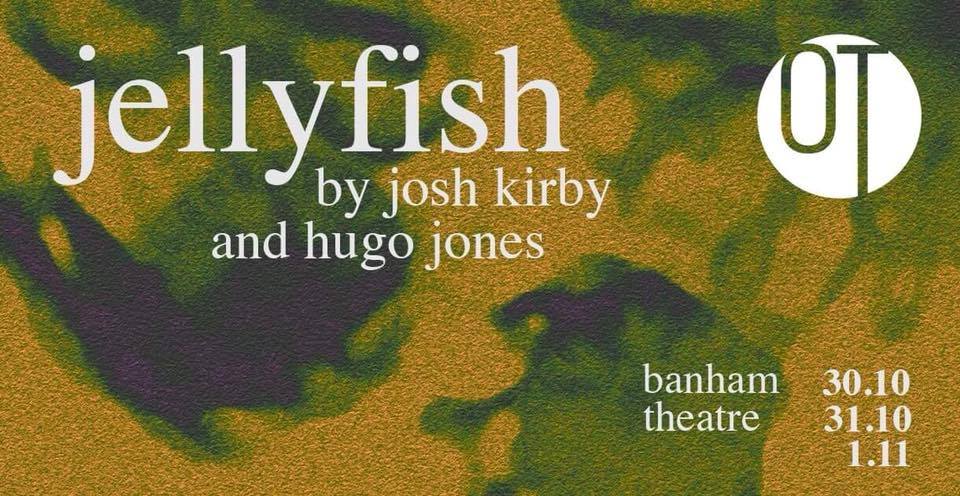Lucy Keitley reviews LUU Open Theatre’s Production of Jellyfish, a play by Josh Kirby and Hugo Jones.
Jellyfish is a post-apocalyptic tale of the extremities of human existence; broken bonds, tyrannical rulers and finally a hope of blossoming love. The play, written by Hugo Jones and Josh Kirby, follows the attempts of General Toots and the rest of his gang in their attempts at survival in the remains of this devastated and floundering world. The group have captured the rather fraudulent so-called oracle, Frederik, who consciously tricks the squad into believing in the power of the godly ‘Light’ in order to ensure his own safety.
The set is laden with relics from That Which Came Before. The most effective prop usage is undoubtedly the battered-up iPhones that Toots’s gang wear around their necks; these being the emitters of the holy ‘Light’ and the key feature of their daily ritual in which they hold up their phones and see if they have signal which entails, according to this strange religion, that they have a connection with this higher power. This religious ritual involving iPhones encapsulates the way in which dystopian fiction can highlight issues within our contemporary society. While deliberately hyperbolic, this idolisation of iPhones is certainly relatable to the hours we all spend on our devices every day.
Character dynamics also play a key role in the narrative. The play explores how when civilisation falls apart humans flit between the desire to create rules and a sense of lawfulness and the impulse to act savagely, following no moral codes. This is embodied in Hulk, who exploits this disastrous situation for his own power-trip, becoming the despotic ruler of the tribe. Erica, an escapee from another camp, talks much of the ‘male ego’ and manages to overturn Hulk and take control of the group in a far more diplomatic manner.
Likewise, dystopian fiction would not be complete without a blossoming romantic relationship. The knowing and matriarchal Erica and the innocent Eve (no doubt alluding to her biblical namesake) reject the egotistical male authority that surrounds them and eventually escape the camp together. This love affair was somewhat predictable but nonetheless it was still notable that this differed from a more typical narrative of heterosexual love in the face of adversity.
Overall, the play achieved what I would argue is the aim of dystopian fiction; it evoked contemporary concerns and displayed the dark sides of human nature when confronted with hardship. A special mention must be given to the ‘Bean Man’, a character who attempted to sell baked beans to the group, who while brutally murdered, certainly put a smile on my face (as well as some stray baked beans cruising towards my shoe) and the rest of the audience. Jellyfish, in short, is a pleasant cocktail of comedy, thought-provoking moments and a lasting glimmer of romance.
Lucy Keitley
Image Courtesy of LUU Open Theatre

